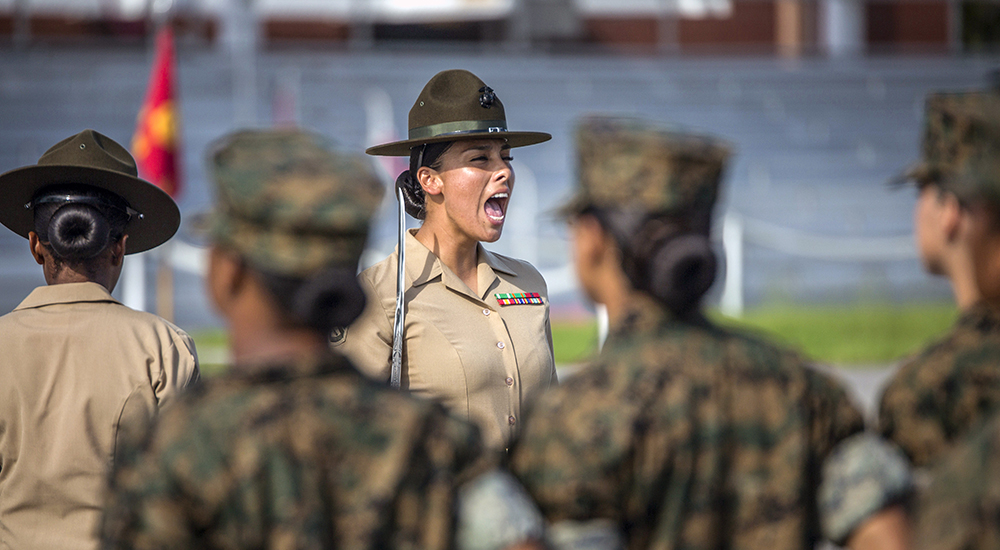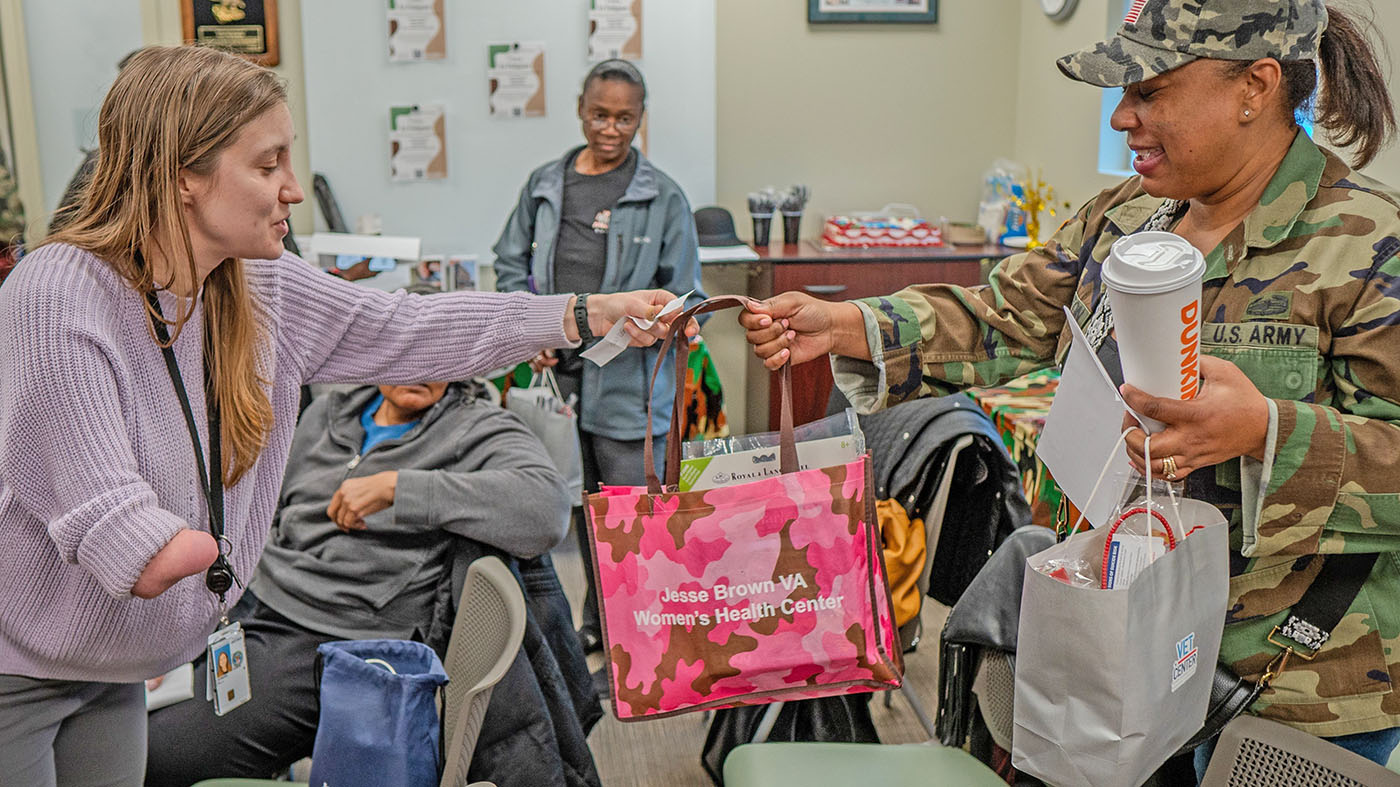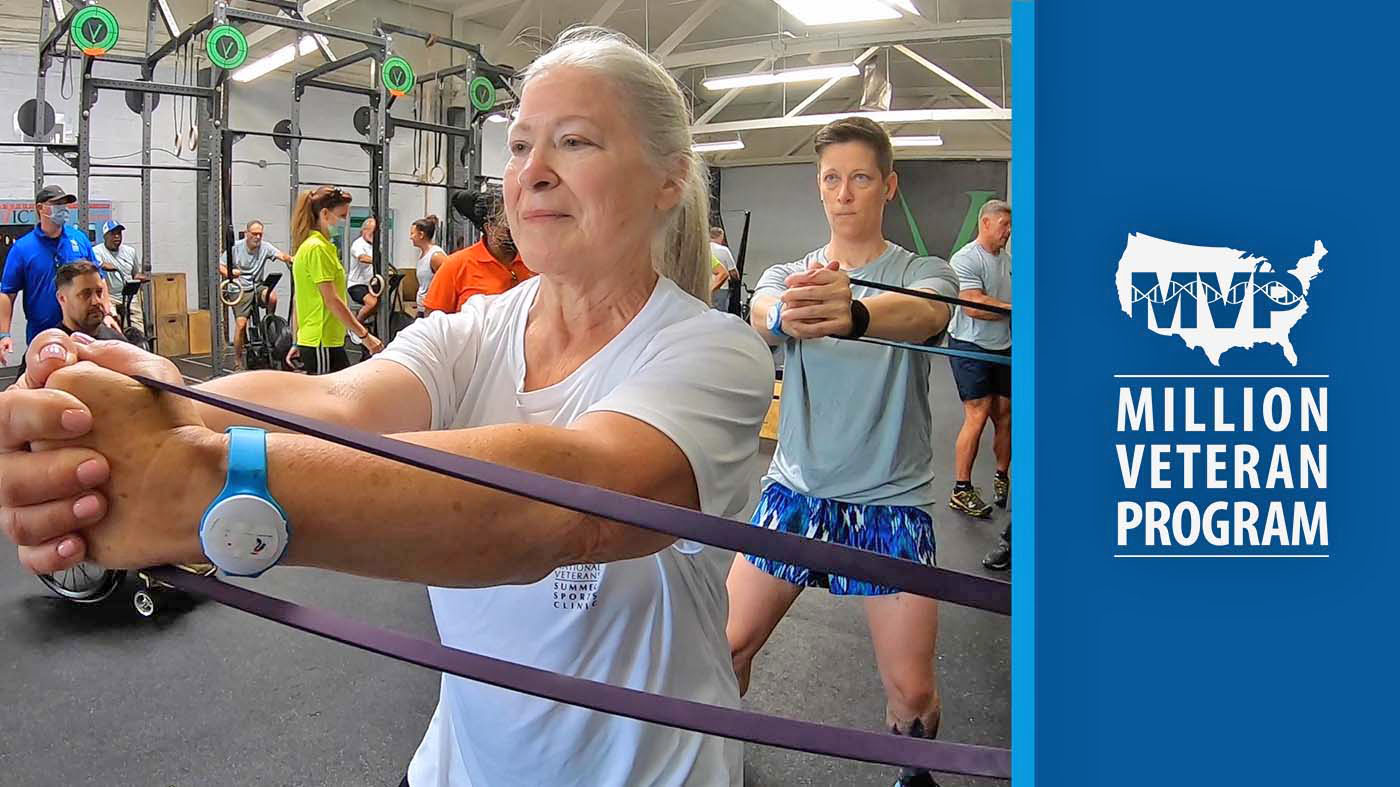The military is no picnic when it comes to consuming food. Eating quickly and at strange hours is a way of life in the armed forces. For many women Veterans, these experiences can affect their eating habits, and relationship with food after their military service is over.
For a study published in the journal Appetite, researchers Dr. Jessica Breland of VA Palo Alto Health Care System and Dr. Shira Maguen of San Francisco VA Health Care System talked with 20 women Veterans about how military service affected their eating habits. They found that many had developed unhealthy patterns such as binging, eating quickly, eating in response to stress and extreme dieting. In many cases, those habits carried over into civilian life.
Military service can change how women eat even after they return to civilian life
Poor eating habits
The Veterans described three military environments that promoted poor eating habits: boot camp, deployment, and on base.
Almost all of the women recalled that in boot camp, they were forced to eat quickly.
“My family asks why I eat so fast, and I say I learned it from the military,” one woman Veteran said. “We were always timed.”
Others ate quickly in order to get second helpings. In addition to eating fast, they also ate a lot. Since they were physically active, they didn’t gain weight. But when they got out of boot camp and continued eating large meals, they gained weight, which then affected their self-esteem.
Deployment changed eating habits even further since there was no set schedule for meals.
“You ate as much as you could before the flies ate your food, or you had to run off and do something and get [to] … the next stressful situation” said one woman Veteran.
On base, meals were less stressful than in boot camp or on deployment, but healthy choices were limited.
“Your options are the mess hall or Burger King and Cinnabon,” said another woman Veteran.
For many women, the need to “make weight”—not exceed maximum military weight limits—was an ongoing struggle. This involved continually monitoring what they ate and being monitored by others. For some, this struggle was tied directly to the stress of being female in the military.
“There is just a whole host of things that we have to deal with that [male service members] don’t have to,” one woman said, “and one of those things is being constantly judged on our appearance. It’s like there is nothing we can do right as women in the military and … that translates into these eating issues when we get home.”
Challenges making weight
Making weight was even more challenging—and critical—after pregnancy.
“They give you nine months to gain the weight [during pregnancy], and if you’re over[weight] when you come back to work in six weeks, it’s career death,” one participant said. “They start writing you up, they start demoting you, but the men don’t have that, you know?”
Some women ate as a way of finding comfort and control in stressful situations. One Navy Veteran said she and a female colleague felt isolated and bullied due to their gender. They used food as a way to feel good and cope.
“When we got in port, we would just hole up in a hotel room, and just buy a whole bunch of just comfort food, candy, cookies, and whatever it was that we wanted to pig out and eat on. So we [were] in a relationship with the food, her and me, which … helped us out a lot.”
Some became trapped in a cycle of overeating and extreme dieting.
“You [could have] the start of a really serious eating disorder that could have killed you and it was reinforced by people saying, ‘Oh my god, look how much weight you are losing,’ like it was a good thing,” one female Veteran said. “Were they going to wait until you were dead before they said, ‘You know, this might not be so healthy’?”
Adapting to civilian life
Some women found it hard to readjust to civilian eating patterns after leaving the service.
“[My family said], ‘We’re not in the military. You have to slow down and back away and think about what you are doing,’” another female Veteran said. “So that was hard … it wasn’t clicking in my head that I was no longer in the military. They didn’t know my norm, and I didn’t know their norm, and we were just clashing all the time.”
Other women reported that they no longer took pleasure in food because years of consuming mediocre military meals had reduced eating to the level of a chore.
“You just eat it or you starve,” as one woman put it.
The researchers caution that their findings may not apply to all women in the military, but only to those with certain risk factors. They hope to do larger-scale research to further explore the issue.
Adapted by Steve Tokar, VHA Office of Digital Media, from an article originally posted at VA Research Currents.
Feature photo by Marine Corps Sgt. Dana Beesley
Topics in this story
More Stories
Navy Veteran and president of the American Medical Association got a colonoscopy and encourages other Veterans to do the same.
Chicago Vet Center and VA gave women Veterans information on VA services available to them.
MVP’s research informs personalized care for Veterans, supporting whole health and beyond.








Oh my goodness, 20 patients and you call that science. I am surprised it was published. I could talk to 20 people at the cafeteria today and call it a study.
Yes, we make choices, but only within the realm the mission and command allows. I worked hard to keep my weight at standards and physical requirements. As age and minor injuries began to change eating, and medication patterns, command often refused to allow me to change my physical training to control the changes. I would be able to negotiate a physical training for a short time and begin to show improvement. The command (due to mission needs- man did not want to participate) would put me in charge of the profile group. Most were recovery and limited to what physical movements they could accomplish. So my physical training was cut back to instruct the group on each individuals ability. Done in three different Officers and 1st Sgt.
It took me a long time to slow down my eating after leaving the military. I was good for a decade or so. I also worked out 6 days a week for most of that time. Then, I became a school teacher, and the fast eating became even more of a problem! As well, my workouts became more sparse. This is an interesting analysis.
Being military personnel isn’t an easy task at all.. that is why they should be paid a good amount of money and eat good food
Everything other than the pregnancy isnt problems just for women, it’s the issues all military members have to work through.
I have been in the military over 35 years and have seen males and females who are over weight. I’ve seen females who after pregnancy lose the weight and I’ve seen some who don’t. Overeating is a choice and there is nothing in this article that indicates that overeating and gaining in the military is exclusive to women. Nobody for these people to join the military and most-likely, nobody forced them to get pregnant. This article sounds like an excuse to whine about personal issues that have nothing to do with the military. There are males who are overweight too. They don’t have the convenience of using gender as an excuse. Just sayin’.
So many women are effected by this.
There is always someone who will have a negative attitude towards the difference in being a female and male. Science has proven that gender plays a role in how we carry our weight as well as how we lose weight. In the article, it also stated that the problem is with some women not all. I have to work twice as hard to lose one pound than a male counterpart. For example, I maintained a steady 132 lbs. regardless how stressed, overeat, or starved. Man, once I hit the menopause stage, my workout routine has increased, food consumption decreased, and counting calories should be my a paid position. Guess what, I might loose 3 lbs in six months. That in itself is defeating. I would love to take part in this study.
It’s not like women don’t know that they will gain weight with pregnancy. Its why they are allowed 84 days of leave now.
Well, I’m no scientist, but I never got pregnant in my ten year service in the military and was I taped for body fat every six months and had do join what we called “the fat boys program”,basically PT with the unit in the morning and the second PT was held after hours. Yet every PT test I excelled reaching a 290 on three different occasions. It was humiliating to say the least, I was in the top 10% of my units Physical Fitness Test earning the Physical Fitness Badge that was sown on my PT uniform. But when I was stationed at Ft. Sam Houston I was diagnosed with a thyroid disorder and at which time I was told to take the medication Synthroid. I left Ft Sam and arrived at Ft Campbell Kentucky and went to get my prescription for Synthroid renewed. The person I spoke with said, “Sorry that’s not the way it works here.” We have to give you a blood test to see if you need this. They performed the blood test and the results came back negative. You know why? I had just run out of meds and my body was still showing the correct levels of T-4 and TSH. No more synthroid for this soldier. So I ballooned up and surprisingly did not keel over while doing PT and those five mile battalion runs every Friday where they wrote down names of the soldiers that fell out to be dealt with later. I was told by a doctor that I could have had multiple organ failure being off my once. So now I am told I am uneligable to re-enlist due to my overweight and failure of tape test. Although I am still passing the PT test. So began my ETS from the US Army. And that is a whole other story within itself. So just remember everyone has their own story.
Personal issues MUST be addressed and acted on as a sign of respect (this is a 2 way street YOU EARN respect, it is given to those that earn it). I do not are if you have been in the military for 100 years, your unit has a very bad problem, and you are IT, a personal issue can affect a person to the point that they are distracted and maybe miss a little item that could make the difference in the mission.
Good for you Don! Military life works for you! As the article stated, research is in its early stages. There are a lot of factors that need to be explored. I agree with you that gender shouldn’t be a factor. I know men who were struggling with their weight while I was in as well. If anyone asked for help getting back on track, we were treated like dirt. Nobody cared or supported us. Men and women alike. Everyone handles things differently.